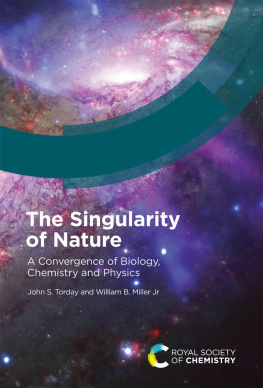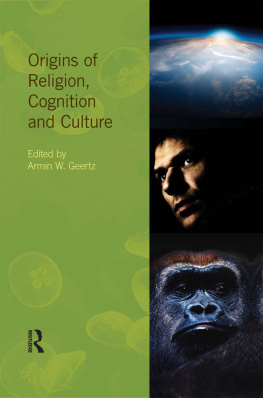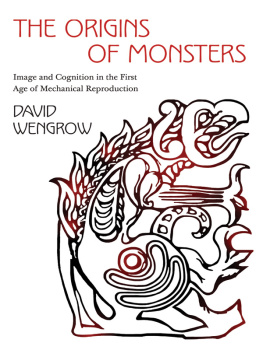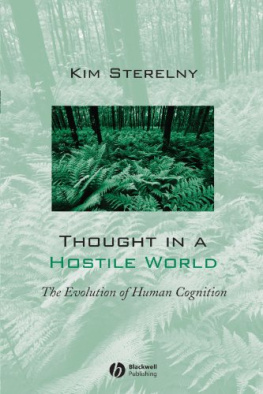Humberto Maturana Rumesin - From Being to Doing: The Origins of the Biology of Cognition
Here you can read online Humberto Maturana Rumesin - From Being to Doing: The Origins of the Biology of Cognition full text of the book (entire story) in english for free. Download pdf and epub, get meaning, cover and reviews about this ebook. year: 2004, publisher: Carl-Auer-Systeme-Verlag und Verlangsbuchhandlung GmbH, genre: Religion. Description of the work, (preface) as well as reviews are available. Best literature library LitArk.com created for fans of good reading and offers a wide selection of genres:
Romance novel
Science fiction
Adventure
Detective
Science
History
Home and family
Prose
Art
Politics
Computer
Non-fiction
Religion
Business
Children
Humor
Choose a favorite category and find really read worthwhile books. Enjoy immersion in the world of imagination, feel the emotions of the characters or learn something new for yourself, make an fascinating discovery.

- Book:From Being to Doing: The Origins of the Biology of Cognition
- Author:
- Publisher:Carl-Auer-Systeme-Verlag und Verlangsbuchhandlung GmbH
- Genre:
- Year:2004
- Rating:3 / 5
- Favourites:Add to favourites
- Your mark:
- 60
- 1
- 2
- 3
- 4
- 5
From Being to Doing: The Origins of the Biology of Cognition: summary, description and annotation
We offer to read an annotation, description, summary or preface (depends on what the author of the book "From Being to Doing: The Origins of the Biology of Cognition" wrote himself). If you haven't found the necessary information about the book — write in the comments, we will try to find it.
From Being to Doing: The Origins of the Biology of Cognition — read online for free the complete book (whole text) full work
Below is the text of the book, divided by pages. System saving the place of the last page read, allows you to conveniently read the book "From Being to Doing: The Origins of the Biology of Cognition" online for free, without having to search again every time where you left off. Put a bookmark, and you can go to the page where you finished reading at any time.
Font size:
Interval:
Bookmark:
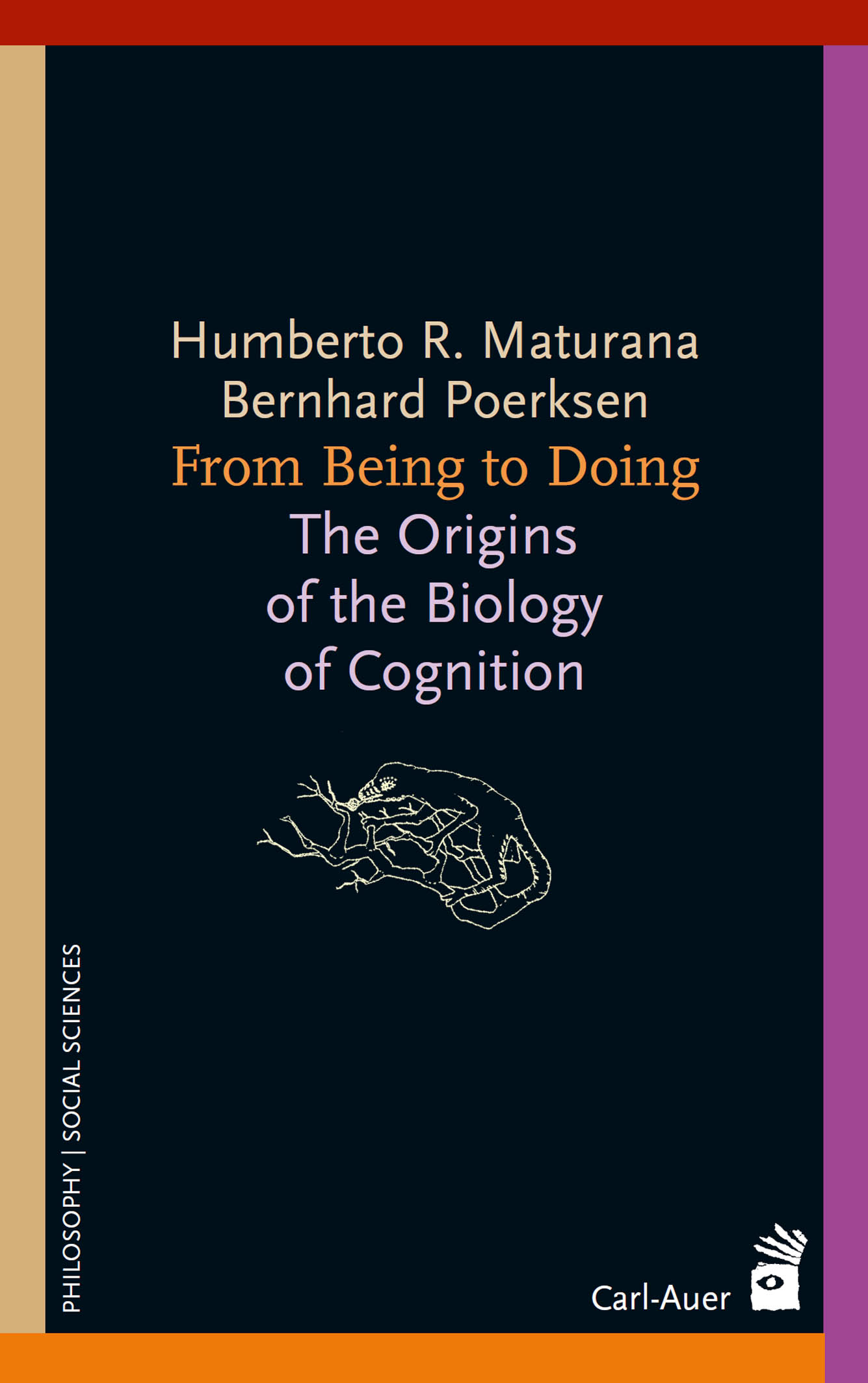
Carl-Auer

Humberto R. Maturana/Bernhard Poerksen
The Origins of the Biology of Cognition
Translated by Wolfram Karl Koeck and Alison Rosemary Koeck
Second Edition, 2011
Cover: WSP Design, Heidelberg
Layout: Verlagsservice Hegele, Heiligkreuzsteinach
Coverpicture: Rene Magritte The False Mirror
Bild-Kunst, Bonn 2004
Printed in Lithuania
UAB Spindulio spaustuv, Kaunas
Second Edition, 2011
ISBN 3-89670-448-6
eISBN 978-3-84978-112-5
Copyright 2004, 2011 by Carl-Auer-Systeme
All rights reserved. No part of this book may be reproduced by any process
whatsoever without the written permission of the copyright owner.
Title of the original edition:
Vom Sein zum Tun
2002 by Carl-Auer-Systeme, Heidelberg
Bibliographic information published by Die Deutschen Bibliothek
Die Deutsche Bibliothek lists this publication in the Deutsche Nationalbibliografie; detailed bibliographic data is available in the Internet at http://dnb.ddb.de.
Published by Carl-Auer Verlag: www.carl-auer.com
Please order our catalogue:
Carl-Auer Verlag GmbH
Vangerowstrae 14
69115 Heidelberg
Germany
Human beings are indispensable
Humberto Maturana, whom I have known for nearly half a century, always addresses his audiences, whether philosophers, physicists, family therapists, business executives or others, with the words: Whoever I am talking to, Im talking to as a biologist. He maintains this attitude in the fascinating conversations with Bernhard Poerksen, a perceptive and intelligent partner, which have resulted in an impressive panorama of ideas stretching from the intricate problems of philosophy and logic to the fundamental ethical questions of everyday life. The central point of view chosen here is the point of view of life itself. Wherever one opens this rewarding book, one will close it again with an enriched and stimulated mind.
Heinz von Foerster
Prof. h. c. University of Vienna, Prof. em. University of Illinois,
Rattlesnake Hill, February 2002
Humberto R. Maturana and I met for the first time in May 2000 in his rooms at the University of Chile in the centre of Santiago. It was there, in his laboratory, that the plan took shape to compile a book that would present, in dialogical form, Maturanas neurosophy, that special mixture of rigorous and wild thinking along the borderlines of natural science and philosophy. During this first encounter we reached some agreement about the key topics and talked, still quite warily and hesitantly and groping for the right kind of form, about the discovery of the observer and the biology of cognition. Torrential downpours, however, flooded half of Santiago so badly that one could only move around in rubber dinghies, and so we could not see each other often enough. The definitive meetings that finally produced this book took place in March 2001, again in Santiago. Our discussions and debates, which varied widely in content, always revolved around a decisive transformation, a re-orientation from being to doing, from the essence of an object to the process of its production. And whatever the topic the era of the dictatorship in Chile, the education of children, or the theory of autopoiesis , Humberto R. Maturana invariably focusses on foundational issues, full of enthusiasm but with intellectual rigour. It is the conditions that generate a reality, that bring it forth, in the first place, that fascinate him, and that he seeks to explore. From such a perspective, nothing remains unchangeable and simply given, everything may be related to and explained by its particular origin and development. When writing this book, I tried very hard to preserve as much as possible of the spirit and the dynamics of this kind of thinking fascinated by changes and transformations. The publisher, Carl-Auer-Systeme, Heidelberg, has been most helpful. Ralf Holtzmann and Klaus W. Mueller have supported the project with confidence and stimulating optimism. Wolfram Matthias Eckoldt, Julia Raabe and Friederike Stock looked through the first transcriptions and formulated their critical comments in such a charming manner that they became inspirations. But the book would never have seen the light of day in its present form without Humberto R. Maturana himself and his practically inexhaustible willingness to talk to me. It could not have been written without his dedication and trust. He therefore deserves my very special, heartfelt gratitude.
Bernhard Poerksen
Hamburg, April 2004
The English translation of the book was prepared by Wolfram Karl Koeck and Alison Rosemary Koeck. The present version contains original English contributions by Humberto R. Maturana (Introduction; texts accompanying figs. 112) and occasional rewordings by the authors and the publisher.
This book presents a rather long conversation that I had with Bernhard Poerksen about the history of my work on the biology of cognition. It is no more but no less than that. So I have not much more to say in this short preface than what I have already said in the book. Yet, I would like to add some reflections on how I lived what the book tells. In particular I will reflect on three basic turning points that I lived while I was working in what became the biology of cognition and the biology of love.
The three turning points that I am talking about occurred to me in relation to my becoming aware of the systemic implications of three ordinary features of our daily living. They were the relational nature of questions, the ordinary fact that we commit mistakes, and our normal daily trust in the repetitiveness of natural phenomena. Of course I knew that questions take place in the relation of the person that asks the question and the person that answers it. Of course I knew that I committed mistakes, and of course I knew that I trusted the regularity of natural processes in my daily living. The expansion in my awareness referred to my becoming conscious of the consequences of acting in the awareness of what those ordinary circumstances and processes of our daily living entail for our doings and our understanding of what we do. Let us see:
If we attend to the relational nature of questions and answers, we can easily see that the person that accepts an answer to his or her question determines in his or her listening what makes the answer that he or she accepts valid for him or her. Whatever the question may be, it is a constitutive feature of the question answer relation that the person that accepts the answer determines what makes it a valid answer. Yet, this is not a peculiar feature of questions and answers; in every relation in which something offered is accepted, the person that accepts what is offered determines the truth, value, or adequacy of what is accepted. Of course what I say is not new, indeed is well known. Yet, if we accept that that is indeed the case, we cannot henceforth ignore in what we do that nothing is true in itself, valuable, adequate or acceptable in itself. Furthermore, if we accept the implications of what I have said above, the following questions arise: what is to know? What is the sense of fighting for the truth? When a scientist asks a question to nature and obtains an answer through experiments or observations, is he or she aware of the fact that it is he or she who determines the validity of the answer obtained, by choosing the criterion that he or she uses to accept or to reject the results of the experiments or the observations?
Font size:
Interval:
Bookmark:
Similar books «From Being to Doing: The Origins of the Biology of Cognition»
Look at similar books to From Being to Doing: The Origins of the Biology of Cognition. We have selected literature similar in name and meaning in the hope of providing readers with more options to find new, interesting, not yet read works.
Discussion, reviews of the book From Being to Doing: The Origins of the Biology of Cognition and just readers' own opinions. Leave your comments, write what you think about the work, its meaning or the main characters. Specify what exactly you liked and what you didn't like, and why you think so.

